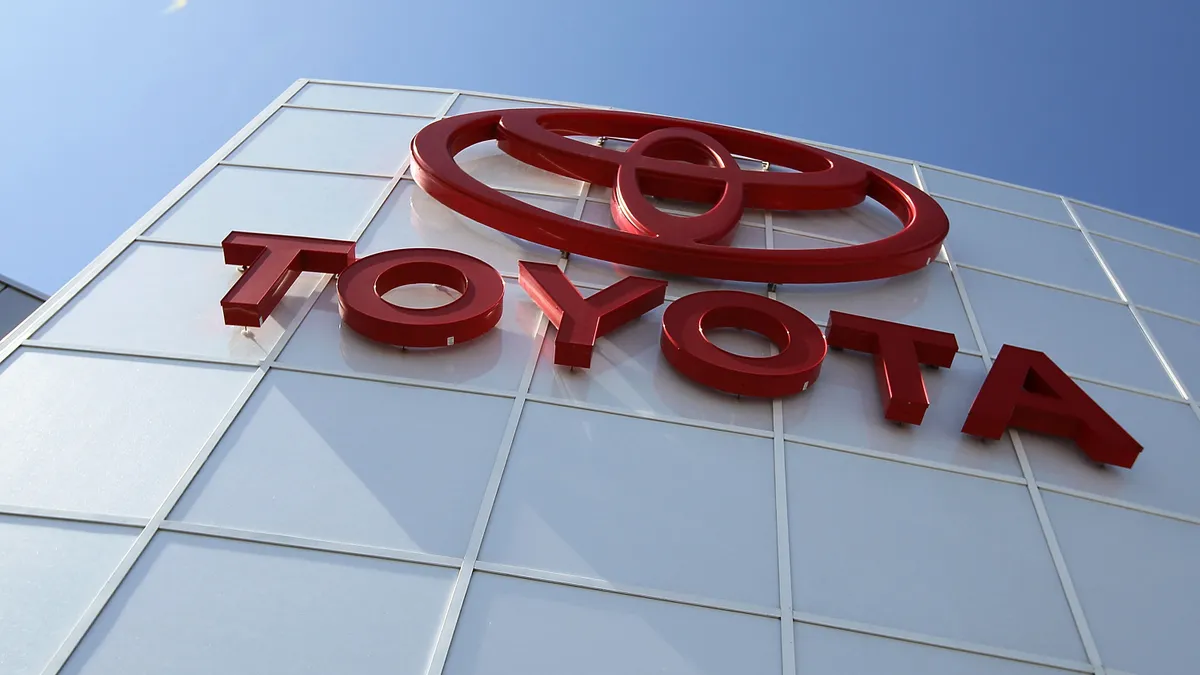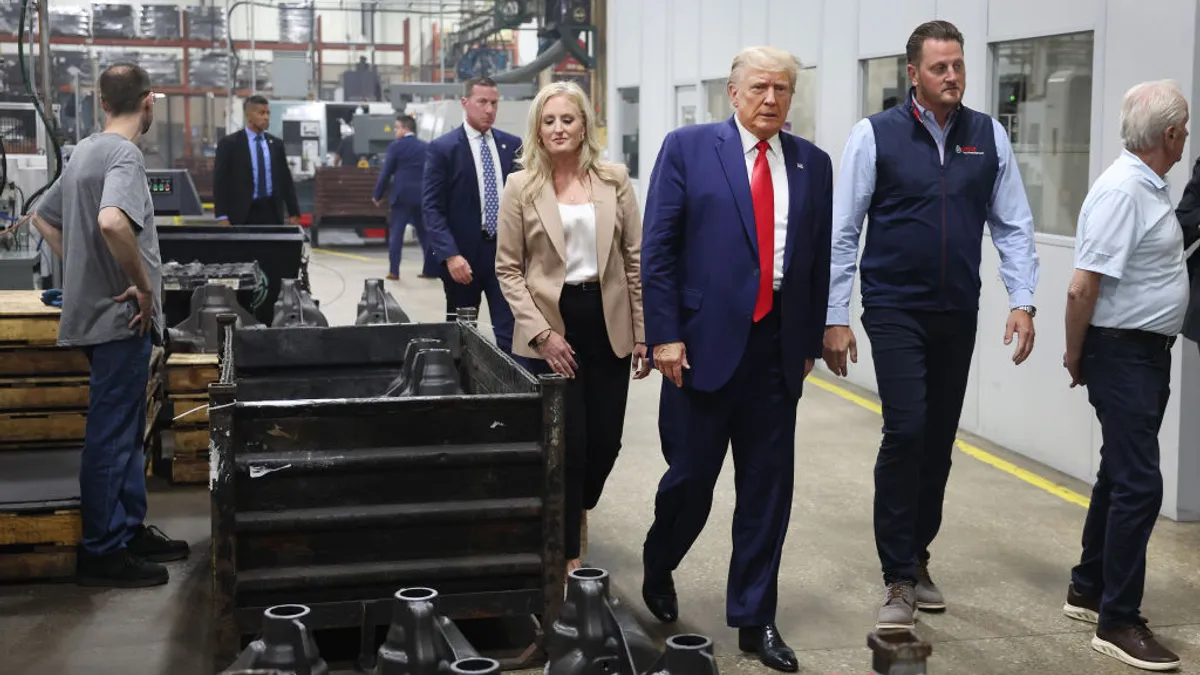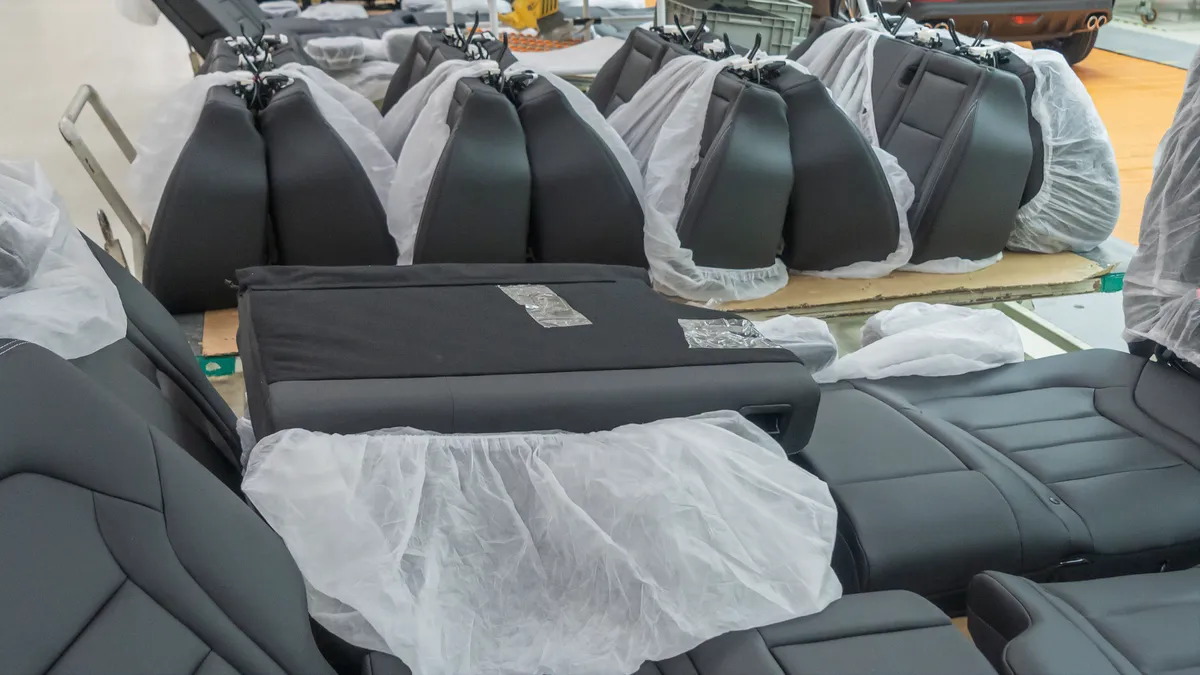Dive Brief:
- Toyota will launch its first U.S.-assembled battery electric vehicle — a three-row SUV — in Kentucky, with production slated to begin in 2025, according to a press release Wednesday.
- The automaker will invest another $2.1 billion in its North Carolina EV battery factory to help boost the SUV’s production.
- Toyota’s investments in EV battery production in North Carolina now total $5.9 billion, as the state emerges as a major EV battery manufacturing hub in the U.S.
Dive Insight:
The investments in North Carolina are part of Toyota’s goal to become a carbon-neutral company. The automaker aims for electrified vehicles, including hybrid and fully electric models, to make up 70% of the company’s U.S. sales by 2030. By 2025, Toyota plans to have an electrified version of every Toyota and Lexus model sold globally.
Toyota’s forthcoming battery-powered SUV will feature lithium-ion batteries manufactured at the automaker’s Liberty, North Carolina, factory. The plant, which will be the automaker’s first U.S. battery manufacturing facility, is currently under construction and is expected to open in 2025 with four battery production lines for hybrid electric vehicles and two for BEVs.
Once fully operational, the company expects Toyota Battery Manufacturing North Carolina to produce battery packs for 1.2 million electrified vehicles per year, which will be built and sold to customers in North America.
North Carolina is emerging as a major electric vehicle battery manufacturing hub in the Southeast U.S., and providing incentives and tax breaks for automakers to set up manufacturing facilities in the state.
In December 2021, North Carolina's Economic Investment Committee approved an incentive package worth over $400 million for Toyota to build and expand TBMNC to meet the demand for batteries.
Last year, Vietnam-based EV startup VinFast selected North Carolina as the location of its North American auto factory and battery manufacturing plant, which will create roughly 7,500 new jobs in the state.
In addition to the North Carolina facility, Toyota’s Kentucky factory, the automaker’s largest vehicle manufacturing plant, will also play a significant role in the company’s move toward carbon neutrality. Currently, the plant can produce 550,000 vehicles annually, which will eventually include building more fully-electric models for the U.S. market. It was also recently retooled to produce more hybrid powertrains.














